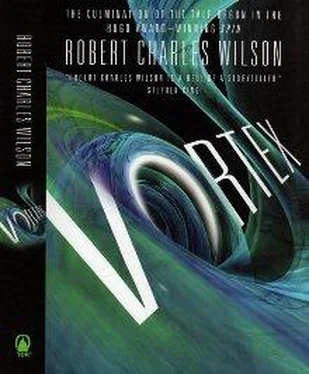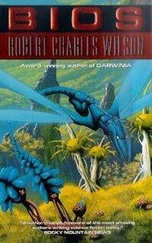“I still need to discuss a few things with Sandra,” Bose said. He asked the waiter to call a cab for her. “While we’re waiting, Ariel, one more question?”
“Go ahead.”
“Did Orrin contact you after he arrived here in Houston?”
“One phone call to let me know he was all right. I was mad enough to light into him for leaving but that just made him hang up, and I was sorry afterward. I should’ve known better. Yelling at him never does any good. A week later I had a letter to say he was working steady and he hoped I wasn’t too mad at him. I would’ve wrote back but he didn’t put down any return address.”
“Did he say anything about where he was working here in town?”
“Not as I recall.”
“Nothing about a warehouse? A man named Findley?”
“No, sir. Does it matter?”
“Probably not. Thank you again, Ariel.”
Bose said he’d call her tomorrow to let her know how things were progressing. She stood up and made her way to the door of the restaurant with her chin thrust forward.
“Well?” Bose asked. “What’s your reaction?”
Sandra shook her head firmly. “Oh, no. No. You don’t get anything more from me until you answer a question or two.”
“I guess that’s fair. Listen, I need a ride home—I came in a cab with Ariel. Can I beg a lift from you?”
“I guess so… but if you bullshit me, Bose, I swear I’ll leave you by the side of the road.”
“Deal,” he said.
* * *
It turned out he lived in a new development off the West Belt, a longish drive and out of her way, but Sandra didn’t object: it gave her time to assemble her thoughts. Bose was patient in the passenger seat, hands in his lap, quietly attentive as she pulled into traffic. It was another mercilessly hot night. The car’s air conditioner struggled gamely.
She said, “This is obviously not standard police work.”
“How so?”
“Well, I’m no expert. But your interest in Orrin seemed unusual from the day you escorted him into State. And I saw you slip the cab fare to Ariel—don’t you need some kind of receipt? For that matter, shouldn’t you be interviewing her downtown?”
“Downtown?”
“At police headquarters or whatever. In the movies they always call it ‘downtown’…”
“Oh. That downtown.”
She felt herself blushing but persisted: “Another thing. At State we talk to HPD referrals every day. A lot of them are considerably less tractable than Orrin, but some are just as scared and just as vulnerable. As a professional I have to behave like a clinician no matter who I’m dealing with. The cops who drop these cases at State, on the other hand… for them it’s the end of a tedious necessity. Their interest in the individuals they remand to us is less than nil. Except on legal business, no cop ever does follow-up. Until you walked in. You acted like you cared about Orrin. So explain that to me, before we get into the question of Orrin’s writing or my opinion of his sister. Tell me what your stake in the matter is.”
“Maybe I happen to like him. Maybe I think he’s being railroaded.”
“Railroaded by who?”
“I’m not sure. And if I haven’t been entirely frank, it’s because I don’t want to involve you in something potentially dangerous.”
“Your chivalry is noted, but I’m already involved.”
“If we handle this badly, you could be putting your job at risk.”
Sandra laughed despite herself. “There hasn’t been a day in the last year I didn’t half hope to be fired. My résumé is out at hospitals all over the country.” This was true.
“Any takers?”
No. “Not yet.”
Bose looked down the highway into the simmering night. “Well, you’re right. What you said. This isn’t standard police work.”
* * *
The Spin had been a difficult time for police and security forces the world over—especially the frightening finale of it, when the stars had reappeared in the night sky and the sun, four billion years older than it had been five years ago, crossed the meridian like a bloody banner of the apocalypse. It had seemed like the end of the world. A great many police personnel had abandoned their duties and joined their families for the final hours. And when it became obvious that the world would not end—that the Hypotheticals would filter the radiation reaching the Earth to a tolerable level, giving the planet at least a probationary future—many of those deserters had stayed home despite a general amnesty. Lives had changed beyond recognition or restoration.
New bodies were recruited, some with only marginal qualifications. Bose had joined the force two decades later, at a time when many of those marginal recruits had become senior staff. He had found himself in an HPD rife with internal conflicts and generational rivalries. His own career, such as it was, had advanced at a glacial pace.
The problem, he told Sandra, was an endemic corruption, born out of the years when vice had spent freely and virtue went begging. The incoming tide of Equatorian oil had only compounded the problem. On the surface Houston was a clean enough city: the HPD was good at keeping a lid on property crimes and petty violence. And if, under the city’s polished exterior, a river of illicit goods and undocumented cash flowed freely… well, it was the job of the HPD to make sure nobody paid too much attention.
Bose had been careful not to skirt too close to the shady side. He had volunteered for drudge work rather than accept dubious assignments, had even turned down offers of promotion. As a result he was considered unimaginative and even, in a certain sense, stupid. But because he never passed judgment on his peers he was also considered useful, an officer whose dogged attention to small matters freed up more ambitious men for more lucrative work.
“So you kept your hands clean,” Sandra said, offering it as an observation but withholding her approval.
“Up to a point. I’m not a saint.”
“You could have gone to some, uh, higher authority, exposed the corruption—”
He smiled. “Respectfully, no, I couldn’t. In this town the money and the power hold hands. The higher authorities are the people taking the biggest dip. Turn right at the intersection. My building’s the second left at the light. If you want to hear the rest of this you can come up to my place. I don’t entertain much but I can probably crack a bottle of wine.” This time his look was almost sheepish. “If you’re interested.”
She agreed. And not just because she was curious. Or rather, her curiosity wasn’t limited to Orrin Mather and the HPD. She was increasingly curious about Jefferson Bose himself.
* * *
Clearly he wasn’t a wine person. He produced a dusty bottle of some off-brand Shiraz, probably a gift, long neglected in a kitchen cupboard. Sandra told him beer would do fine. His refrigerator was amply stocked with Corona.
Bose’s single-bedroom apartment was conventionally furnished and relatively neat, as if it had been cleaned recently if not enthusiastically. It was only three stories up but it was situated with a partial view of the Houston skyline, all the gaudy towers that had shot up in the aftermath of the Spin like gigantic pixelboards of randomly lit windows.
“It’s the money that drives the corruption,” Bose said, putting a chilled bottle into her hand and sitting opposite her in a recliner that had seen better days. “Money, and the one thing more valuable than money.”
“What’s that?”
“Life. Longevity.”
He was talking about the trade in Martian pharmaceuticals.
Back in med school, Sandra had roomed with a biochemistry major who had been obsessively curious about the Martian longevity treatment brought to Earth by Wun Ngo Wen—she had suspected that its life-prolonging effects could be teased away from the neurological modifications the Martians had engineered into it, if only the government would free up samples for analysis. That hadn’t happened. The drug was deemed too dangerous for general release, and Sandra’s roommate had gone on to a perfectly conventional career, but her intuition about the Martian drug had been correct. Samples had leaked out of the NIH labs onto the black market.
Читать дальше












